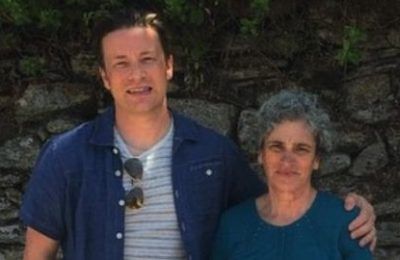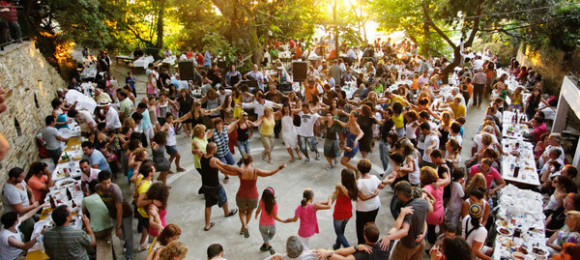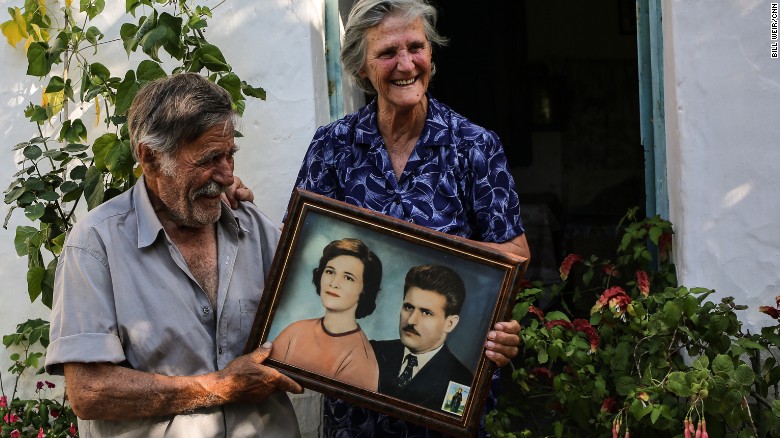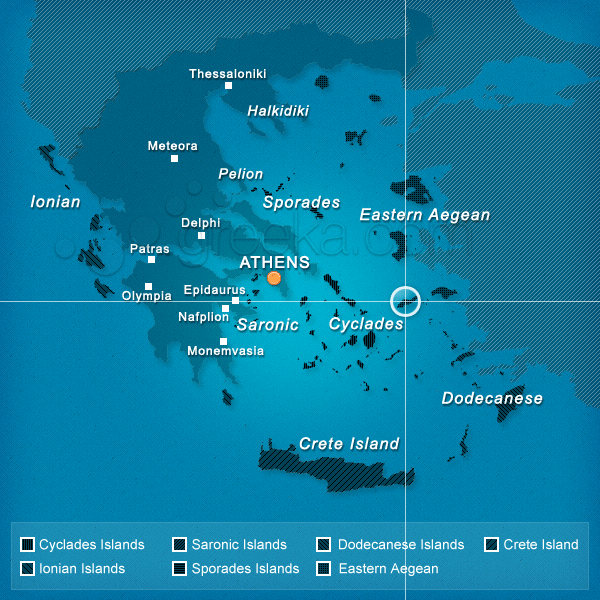Do it like hoary Ikarians, and … conquer longevity. What are those invaluable secrets that even official medical studies haven’t been able to fully uncover yet but put the Greek island of Ikaria on top of the Blue Zones list? In this 155sq.m. island, the percentage of its 9,000 cultured inhabitants that reach 100 years is ten times higher than any other average in the world. That’s why Ikaria is becoming increasingly the subject of many university studies and mainstream media coverage, as the
island where people forget to die, in a period of strong economic and demographic crisis.
Yearly, during the last decade, there are international conferences organized in Ikaria by local scientists and University Departments, like the First Cardiology Department of the University of Athens headed by an Ikarian Cardiologist. Doctors from all over the world are digging into on-going studies, and other published ones in Cardiology Research
and Practice journal, all of which map, simply but literally, some of the vital mysteries that have awarded Ikarians, a top place in the list of the most "blessed" people on the planet; those who enjoy longevity, well being and fewer cancer and heart diseases. Here, I sum up and unveil the basic ingredients of this invaluable longevity formula that surrounds me the last 42 years.
 10. Daily Organic Nutrition. Most Ikarians keep small family farms and gardens that provide their families with all the necessary organic byproducts. Fresh fruits, lots of olive oil, goat milk and 'Kathoura' cheese, local edible and drinkable herbs fit to be eaten in salads and pies, an
10. Daily Organic Nutrition. Most Ikarians keep small family farms and gardens that provide their families with all the necessary organic byproducts. Fresh fruits, lots of olive oil, goat milk and 'Kathoura' cheese, local edible and drinkable herbs fit to be eaten in salads and pies, an
Note: Ikarians don’t only consume their land’s natural products but once a year they formulate natural healing ointments that come extremely handy and effective on many occasions, like the Balsam Oil. These balms are perfect for wounds, burns and various skin problems.
 9. Wine. Ikaria is considered to be the birthplace of Dionysus, God of fertility, pleasure and of course… wine. It’s no luck that the oldest references of wine are those about Ikarian wine and can be traced in Homer’s primary literature, and later in Plato’s. King Ikarios is the historic person, who taught Dionysus how to make wine -not to be confused with Icaros who “fell” close to the island (he actually drowned but that's another story) and the island was named after him.
9. Wine. Ikaria is considered to be the birthplace of Dionysus, God of fertility, pleasure and of course… wine. It’s no luck that the oldest references of wine are those about Ikarian wine and can be traced in Homer’s primary literature, and later in Plato’s. King Ikarios is the historic person, who taught Dionysus how to make wine -not to be confused with Icaros who “fell” close to the island (he actually drowned but that's another story) and the island was named after him.
All ancient sources point to a variety of grapes from the vineyards on the Ikarian Mountain Pramnos. This specific wine, among other unique and awarded Ikarian varieties like Begleri or Fokiano, is a very strong one and the ancients were always drinking it with a little water added to avoid side effects. And were they right! Homer mentions in Odyssey (Ch.10 v.258) that Witch Kirke fed Ulysses’ men with ‘Pramnian wine’ (Πράμνιος οίνος) that turned them into pigs; this is certainly an epic metaphor of the behaviour that easily follows this wine’s consumption. In Iliad, also, (Ch.11 v.755), Pramnian Oinos was consumed carefully with Ikarian cheese as a powerful breakfast either to prepare the men before the Trojan fights or to heal them. Similar references for Ikarian wine exist also in Homer’s Hymn for Dionysus and Plato’s Republic where Socrates learns from Ion the healing properties of the Pramnian wine when mixed with goat cheese and herbs.
Ikarian DNA has slowness as its core gene. It’s genetically impossible for an Ikarian to follow schedule, much less a tight one. The rule of thumb here is that everything, especially meetings and appointments, no matter how official they may be, are impossible to start sooner than… two hours later! Every year there are numerous and humorous misunderstandings between non-Ikarian visitors ignoring this common secret, and arrive fully dressed up for weddings, christenings or even funerals on the time announced! Not even the Priest will be there on time. That’s why those who‘ve experienced this, in their future hang outs with Ikarians, outside Ikaria, always make sure to invite them two hours earlier than any actual event, to make sure they won’t appear ridiculously later. Hint: I can bet blindly that statistics would show that most of the late-show or non-show passengers in Greece, in ports or airports, are Ikarians.
 7. Coffee. Every occasion on this island, is an occasion to have a cup of coffee. But not just any filtered coffee or any fancy espresso based drink with cream; you can enjoy those in the cafes, of course; inhabitants enjoy daily about three cups of good old, hot, boiled, (not brewed) ‘Greek’ coffee. It’s no luck that latest studies refer to the heart-protecting
superpowers of this variety that is being prepared in the same way for ages. You may hear this coffee called ‘Turkish’ rather than ‘Greek’ but in any case both names describe its history. This coffee is rooted back to the Byzantine era and since the Turks occupied almost all Greek distinctiveness for about four centuries (15th-19th), this superdrink didn’t manage to escape.
7. Coffee. Every occasion on this island, is an occasion to have a cup of coffee. But not just any filtered coffee or any fancy espresso based drink with cream; you can enjoy those in the cafes, of course; inhabitants enjoy daily about three cups of good old, hot, boiled, (not brewed) ‘Greek’ coffee. It’s no luck that latest studies refer to the heart-protecting
superpowers of this variety that is being prepared in the same way for ages. You may hear this coffee called ‘Turkish’ rather than ‘Greek’ but in any case both names describe its history. This coffee is rooted back to the Byzantine era and since the Turks occupied almost all Greek distinctiveness for about four centuries (15th-19th), this superdrink didn’t manage to escape. 6. Walking. Every distance on the island, used to be measured in walking time, especially when the infrastructure was poor or non existent. Nevertheless, people still walk and don’t use their car around their own village. Older people won’t let you give them a ride because you’d ruin their regular
exercise. Walking for Ikarians, means socializing as well, a chance for small talk and maybe another Greek coffee at a neighbor’s house.
6. Walking. Every distance on the island, used to be measured in walking time, especially when the infrastructure was poor or non existent. Nevertheless, people still walk and don’t use their car around their own village. Older people won’t let you give them a ride because you’d ruin their regular
exercise. Walking for Ikarians, means socializing as well, a chance for small talk and maybe another Greek coffee at a neighbor’s house.
5. Family. It remains the strongest value among Ikarians whereas grandparents try to spend as much time as possible with children and grandchildren. But these people with strong family bonds, haven’t formed a restricted and closed circle that precludes foreigners, as in other places in the world. Visitors are always warmly welcome and taken care of. Ikarians are influenced by the traditional Orthodox Christian virtue of hospitality. Old customs mention that the monasteries, and most homes located on the central roads and pathways would leave food outside for the foreign visitors, in case no one was home to personally take care of them. When the food was found intact, they’d became sad and perceived it as God’s abandonment! Houses still remain unlock in many places, even though incidents of intruders might exist from time to time.
 4. Feasts. Festivities are a big part of the Ikarian way of life. On every name day of a local Saint, there’s a festivity (panigyre) organized usually around the Church that may begin early evening and go on till the next day. The renown psychotropic Ikarian dance together with endless local (light) wine and wild goat, low in meat fat, create an addictive environment and a good revenue for the local village that will use it on local community works or as an aid to poorer families. Mainly, these festivities take place from May till October. There are other unscheduled gatherings that will take place when there’s an extraordinary need for someone that can’t afford medical expenses or have suffered an unexpected loss of income due to an accident etc. In this case, local villagers won’t just gather some money to hand it over but they’ll organize a ‘Spaghetti night’ where almost everyone will go and pay for a pasta treat, prepared by local housewives and served along with wine and music, of course.
4. Feasts. Festivities are a big part of the Ikarian way of life. On every name day of a local Saint, there’s a festivity (panigyre) organized usually around the Church that may begin early evening and go on till the next day. The renown psychotropic Ikarian dance together with endless local (light) wine and wild goat, low in meat fat, create an addictive environment and a good revenue for the local village that will use it on local community works or as an aid to poorer families. Mainly, these festivities take place from May till October. There are other unscheduled gatherings that will take place when there’s an extraordinary need for someone that can’t afford medical expenses or have suffered an unexpected loss of income due to an accident etc. In this case, local villagers won’t just gather some money to hand it over but they’ll organize a ‘Spaghetti night’ where almost everyone will go and pay for a pasta treat, prepared by local housewives and served along with wine and music, of course. |
| Koufadakis couple (CNN) |
3. Lots of laughter and open heartedness. This is a laughing island and Ikarians will comically refer to everything that’s going on around them, from minor behaviors to global incidents. Their sense of humor is above average and their glib characters always help them to tell a funny story on the spot. With this idiosyncrasy, it is difficult not to have depression rates under
5 (on a scale of 10) (on a scale of 10) and avoid
or stall dementia. There are countless hilarious incidents which happen to them daily and the news spread around quickly. Not long ago, a 95 year-old man was driving his old farming tractor when a couple of newcomer policemen stopped him for a zealous routine check. When they asked the old man for his license and registration… he slowly lifted his seat, searched among some old tools, pulled out an old foiled wrapped package and presented it to the policemen. A silent minute later, after they managed to locate the relevant documents, they carefully unfold them, and with a surprised and shocked look, they pointed out the license to the old driver and said to him, “Do you know that the expiry date is almost 20 years ago?” “I guess it has, but… so what? Did you want to eat it?” he answered. They outburst in laughs and let him go with a typical warning.
 2. Working. Ikarians, don’t live to work, they work to live; on a “daily bread” basis. Autarky is the wise synonym of ‘work’ in Ikaria. You’ll never see an anxious merchant, grocer or entrepreneur there. When a man feels self-sufficient for the day, he might close up before the next crowd of tourists arrives! In the largest mountain village Rahes, stores are actually open only after 10p.m till around 4-5a.m. If you visit this beautiful and rare place during the day, you’ll take it for a ghost village. The local Bakery is literally left open during the day, because the owner is not present. Oh yes, you can buy the bread he’s prepared early in the morning. All you have to do is take one, leave the money on the counter and take your change if necessary. In case you need to shorten or sew a cloth, take it to the tailor around 12 midnight and if it’s urgent you’ll have it back after a couple of hours, as long as you won’t try to rush him. And the service is cheap too. All this routine, does have its roots back in time, but I‘ll let you discover them when you get there. Ikarians sleep early at winter and late at summer. They wake up early to do the everyday jobs and they always try to have a power nap during the midday hours. How do they manage then to devote in difficult tasks? They take their time and there’s always a community involvement that splits the work and offers a chance for socializing while building a roof or repairing a road. This is the old habit of bartering.
2. Working. Ikarians, don’t live to work, they work to live; on a “daily bread” basis. Autarky is the wise synonym of ‘work’ in Ikaria. You’ll never see an anxious merchant, grocer or entrepreneur there. When a man feels self-sufficient for the day, he might close up before the next crowd of tourists arrives! In the largest mountain village Rahes, stores are actually open only after 10p.m till around 4-5a.m. If you visit this beautiful and rare place during the day, you’ll take it for a ghost village. The local Bakery is literally left open during the day, because the owner is not present. Oh yes, you can buy the bread he’s prepared early in the morning. All you have to do is take one, leave the money on the counter and take your change if necessary. In case you need to shorten or sew a cloth, take it to the tailor around 12 midnight and if it’s urgent you’ll have it back after a couple of hours, as long as you won’t try to rush him. And the service is cheap too. All this routine, does have its roots back in time, but I‘ll let you discover them when you get there. Ikarians sleep early at winter and late at summer. They wake up early to do the everyday jobs and they always try to have a power nap during the midday hours. How do they manage then to devote in difficult tasks? They take their time and there’s always a community involvement that splits the work and offers a chance for socializing while building a roof or repairing a road. This is the old habit of bartering.
Ikarian society is a matriarchic one, rather than patriarchic; because women run things in the family, men are left with higher mind peacefulness… and who knows, maybe this is the outsider factor that seriously contributes to the fewer heart attacks in the island.
 1. Radon (‘Rn’ –not radiation, not radioactive) enriches the island’s underground and augments most of its food chain. The water reserves obviously contain light, non-harmful but beneficial doses of Radon that with various other chemical elements gather in higher quantities only in the natural thermal springs. Waters of the hot springs in Ikaria are the most natural therapeutic treatments of several serious diseases, like Chronic rheumatisms, arthritis, neuralgia, neuritis, muscle pains, some forms of abnormalities on circulation system, abnormalities on respiration system, and skin maladies.
1. Radon (‘Rn’ –not radiation, not radioactive) enriches the island’s underground and augments most of its food chain. The water reserves obviously contain light, non-harmful but beneficial doses of Radon that with various other chemical elements gather in higher quantities only in the natural thermal springs. Waters of the hot springs in Ikaria are the most natural therapeutic treatments of several serious diseases, like Chronic rheumatisms, arthritis, neuralgia, neuritis, muscle pains, some forms of abnormalities on circulation system, abnormalities on respiration system, and skin maladies.
Radon, also provides a strong, though overlooked, explanation -and a good excuse too- for this characteristic indolence behavior of its islanders that has been recorded for centuries by travellers.
Particularly, Ikaria’s capital Ag. Kirikos, is surrounded by the Radon hot springs, making the atmosphere a little more ‘heavier’ and this is where you unconsciously enter in slow motion mode -no matter in which Capital of the world you’re used living.
For other health troubles like kidney stones, there’s a specific slow lowing spring, right on the rocky beach of Xylosirtis village, where you can fill a weekly dose of ‘Athanato Nero’ (Immortal Water is the English translation) and after a couple of glasses per day for one week, you’ll be as clean inside as the day you were born. Athanato water was once sold in Pharmacies.
 So, do Ikarians constitute a menace to the Greek Pension Funds, in a period of economic and demographic crisis just because they enjoy living longer on retribution rather than on contribution? Yes, theoretically they do. But numbers don’t lie. Thank God they aren’t that many and they aren’t counting on their chopped pensions to live longer, but on the self-sufficiency of their blessed land, that slowly reveals the secrets of happiness to the rest of the world.
So, do Ikarians constitute a menace to the Greek Pension Funds, in a period of economic and demographic crisis just because they enjoy living longer on retribution rather than on contribution? Yes, theoretically they do. But numbers don’t lie. Thank God they aren’t that many and they aren’t counting on their chopped pensions to live longer, but on the self-sufficiency of their blessed land, that slowly reveals the secrets of happiness to the rest of the world.
George G. Spanos,
One of the Ikarians
